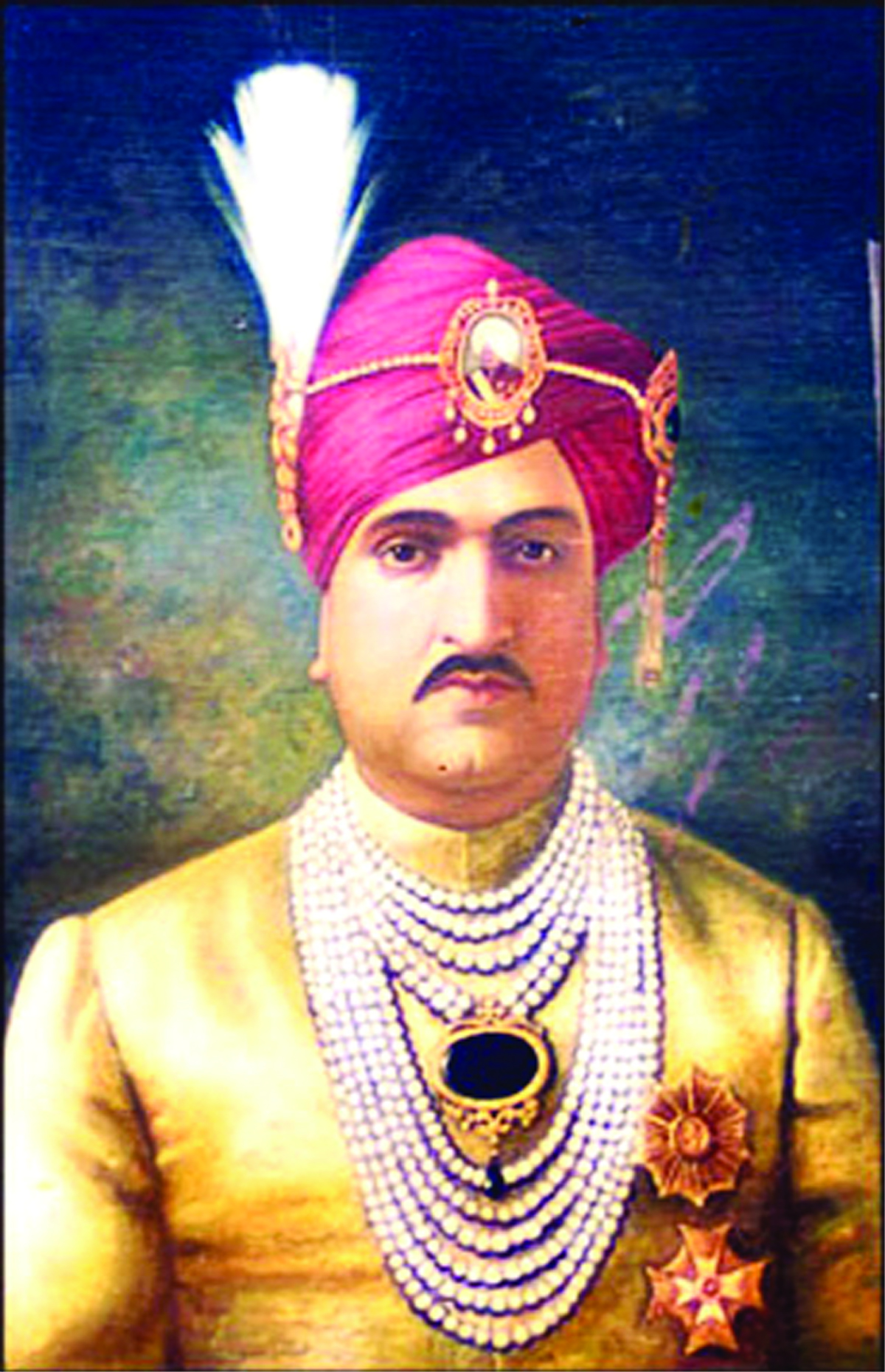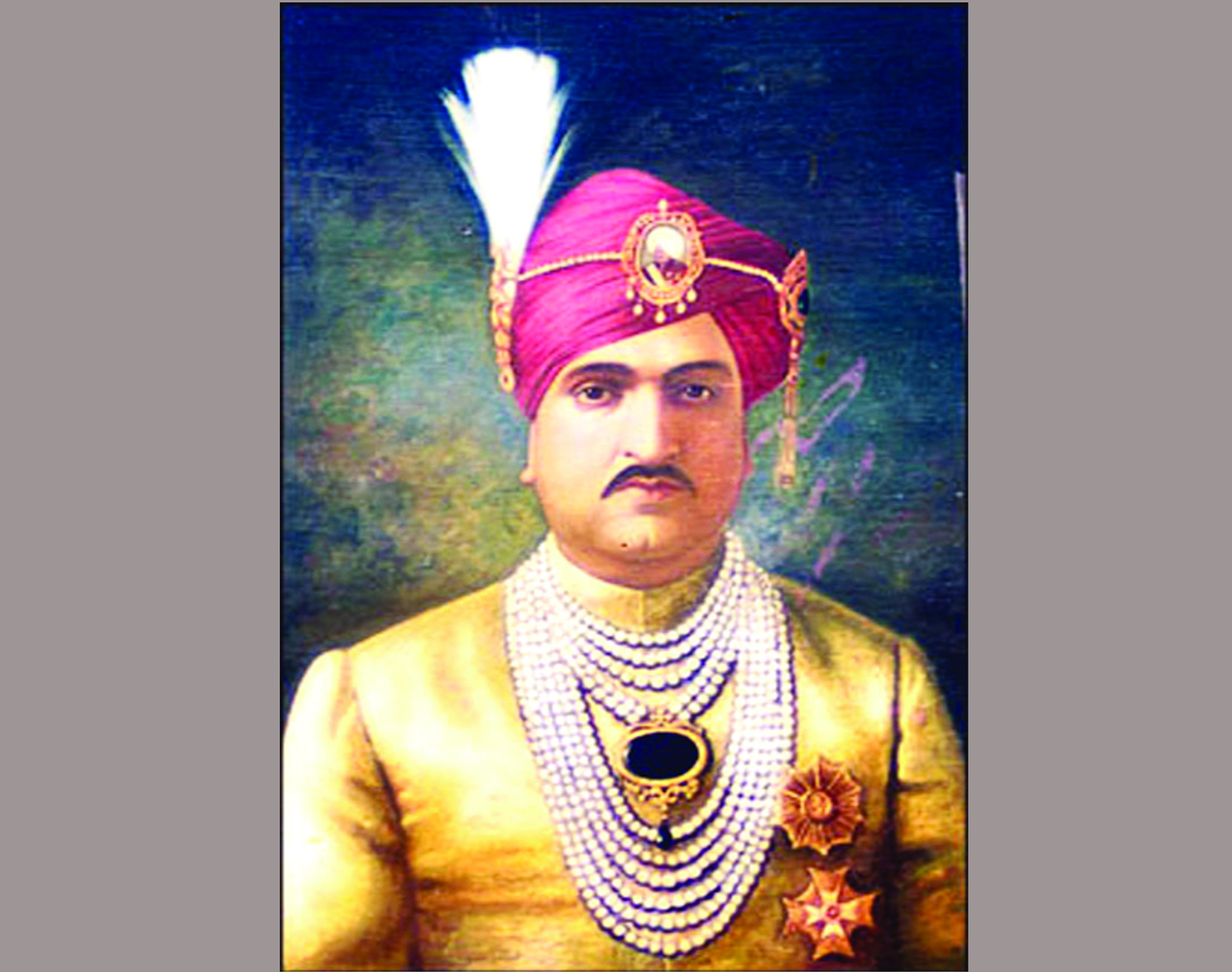Suresh Sharma
Famous historian EH Carr in 1961 once wrote” History consists of a corpus of ascertained facts that are available in documents, inscriptions and so on, like fish on fishmonger’s slab. The historian collects them, takes them home and cooks and serves them in whatever style appeals to him,” As EC Carr said, so is the history told to us ,written for Maharaja of J&K State . One side has been told to us and the other needs to be discovered. so diving into the historical evidences to counter what we were told ,what we knew , to what really it is and what we should tell to the coming generations about great educationist, secular administrator , people’s ruler whose 127th birth anniversary is on 23rd sept 2021.
One side has been told to us and the other needs to be discovered. so diving into the historical evidences to counter what we were told ,what we knew , to what really it is and what we should tell to the coming generations about great educationist, secular administrator , people’s ruler whose 127th birth anniversary is on 23rd sept 2021.
The foremost example of nationalism could be gauged from his prespective during the first round table conference in 1930.After years of being member of the Standing Committee of the Chamber of Princes, and then afterwards pro-Chancellor of the Chamber, Hari Singh advocated for India’s freedom in 1930, at the First Round Table Conference held at London. Much to their horror, Maharaja Hari Singh ji literally knocked the wind out of the British strategy when he got up to make his speech: “While Indian Princes valued the British connection, they had full sympathy for the aspirations of their motherland for an equal and honourable place in the comity of nations.” He went on to add, “As Indians and loyal to the land whence they derived their birth and infant nature, the princes stood solidly with their countrymen for India’s enjoyment of a position of honour and equality in the British Commonwealth of Nations.” This outspoken support to the demand for independence came as a major setback to the Government , for nobody dared to openly say such things and it had serious repercussions on his future relations with Britishers which he knew would be not so cordial .The Patriotic speech of Maharaja Hari Singh offended the British power and they started looking for opportunity to avenge the Maharaja for his patriotic speeches. His idea of a United Federal India proved to be a noose for Maharaja Hari Singh ji. As a sequel to this statement, Britishers worked to have a check on activities of Maharaja. They tried to pressurise him to post a British resident in state and give some area of Gilgit on lease to them so that they can keep their eyes on the border of the state and Russia. As the British authorities got organized anti-Hindu riots in the State with the sole aim of discrediting the administration even though action like Glancy Commission proved Maharaja as secular egalitarian personality. The Britishers employed in the State were in search of a henchman who could carry out their nefarious designs against the Ruler. Muslim Conference proved to be the most suitable choice for their plans. P.N. Kaul Bamzai, a Kashmiri scholar, who wrote the monumental History of Kashmir among other books, says: “The proud Maharaja, ignorant of the forces that were rising at his feet, the apparent calm and docility of the people lulled him into a false sense of security. But all was not quiet…” His reign was marked by complex political events, conspiracies, and sweeping changes which had the power to completely overwhelm a mere mortal. Even then he rose above the communal stereotyping and stood by his words, ‘Justice is my religion’. Maharaja Hari singh was much more than a hindu king ruling muslim majority state. Malika Pukhraj, the legendary songstress and one of the gems of Maharaja’s durbar in her autobiography, writes that Maharaja Hari Singh always said, “I have never differentiated between the Hindus and Muslims for the two communities are like my two eyes”
Even when some people warned Maharaja of extremist view of some Army Personnel ,Maharaja Hai Singh always opposed religious dogma. However, the nationalist Maharaja Suffered the betrayal of Sixth Kashmir Infantry’s Sardar Ibrahim,Qayoom Khan and Col. Hassan In August 1947. when Pakistan was created, the sixth kashmir infantry having Armymen from Mirpur, Bhimber and Rajouri revolted and gilgit scouts helped in it. Betrayal of Sardar Ibhrahim, Qayoom Khan and Col. Hassan khan made the area to hand over to Pak. which was blow to the secular fabric of the state .AS Kjell Bondevik, when speaking on religious extremism, stated that, “All religions can be misused by extremists who are seeking to find arguments for persecution or a holy war.
In his book, Accession of Kashmir to India, the author had claimed that ” Maharaja was never willing to join Pakistan”. Its known that neither Mr. Jinnah’s Military Secreatary who came thrice to Srinagar could persuade maharaja to join Pakistan nor the advice of Lord Mountbatten on 19th June 1947 created any difference even when geographical position, communication network, political situation and Population composition was such that Pakistan was shown as only destination where the state of J&K could land. Iron Man Sardar Patel sent a message to the RSS Chief Sh M.S Golwalkar through Mehar Chand Mahajan, the then Prime minister of J&K to use his influence to prevail upon Maharaja to accede to India. Sh Guruji cancelled all his engagement and rushed to Srinagar from Nagpur via Delhi on Oct 17 ,1947 to have words with Maharaja Hari Singh ji, as a nationalist, he had long meeting with Guru ji on morning of oct 18 ,1947 who cleared many confrontations and doubts about New Delhi and he sent accession proposal to India after it was also endorsed by Prime minister Mehar chand Mahajan Maharaja presented Guruji with Tosa (Fine Pashmina wool) Shawal. Guruji assured that Sardar patel will look after all the interests of the state.MS Gowalakar came back to Delhi on 19 Oct 1947 and reported the readiness of Maharaja to accede to India
In the Book Looking Back ,PM of J&K Mehar Chand Mahajan rightly illustrates the what really plebiscite meant to Maharaja and him. “It was null and void exercise”. As far as plebiscite idea mooted by Jawahar Lal Nehru with the UN , P.M OF J&K said” I strongly objected thereto, because with a mass of illiterate people such a course had no meaning. They could always be carried away by appeal to religious feelings and by slogans like “Would you go to the Mosque or the temple.” Sardar Patel thought that a plebiscite would never be held. In his view it had no meaning after the Maharaja had acceded to India in terms of the Indian Independence Act. This act of accession was complete and conclusive
While Maharaja Hari Singh was in favour of accession, Nehru’s insistence on freeing and installing Sheikh Abdullah as Prime Minister of Jammu and Kashmir created an unnecessary delay. Pandit Nehru remained adamant on Sheikh’s coronation. Hence, Maharaja Hari Singh was left with no other option but to accept the conditions put forth by Pandit Nehru. He released Sheikh from jail and made him the emergency administrator. Thereafter, Maharaja Hari Singh signed the Instrument of Accession in favour of India. Maharaja Hari Singh signed an unconditional Instrument of Accession on 26 October 1947. The draft of this was the same as the ones signed by the other acceding Princely States of the erstwhile British Indian Empire. The accession of the State of Jammu and Kashmir was full and final as well as unquestionable as it was accepted by Lord Mountbatten as Governor-General of India, in the same way as in the case of other Indian States. So both morally and legally, Jammu-Kashmir became an integral part of India on 26 October 1947. ln 1951, the absolute rule of Maharaja Hari Singh was terminated by the Assembly and his son, Yuvraj Karan Singh took over as first Sadar-i-Riyasat of the State. Later, he became Governor in 1964. Maharaja Hari Singh ji was sent to exile in Bombay in 1951 where he died in 1961. So now its crystal clear who were against the overall mess in state and why accession was delayed and that the nationalist tag can only be given to Our great maharaja Hari Singh ji. It’s time to accept the truth. Hail the Nationalist Maharaja Hari Singh JI and he will continue to live in the mind and soul of every nationalist of India.
“When a great man dies for years the light he leaves behind him lies on the paths of men” H.W Longfellow


